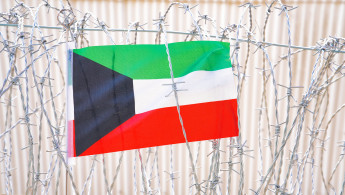Kuwait executes seven murder convicts amid condemnation by rights groups
Kuwait on Wednesday executed seven people convicted of murder, despite calls from rights groups to for a moratorium on the death penalty in the Gulf state.
Four Kuwaiti nationals, one Syrian, one Pakistani and one Ethiopian were put to death in the country’s central prison, according to a statement released by the public prosecutions service.
The executions were the first since January 2017 in the country, when seven people were executed by hanging, including a member of the royal family.
#النيابة_العامة #دولة_الكويت pic.twitter.com/yxexx2OpYn
— النيابة العامة بدولة الكويت (@PPGOVKW) November 16, 2022
"The public prosecution oversaw the execution of the death sentences… in the central prison today," the public prosecution wrote in a statement on Twitter.
In a statement posted shortly after the announcement, the prosecution referenced verse 2:179 of the Quran to state their belief that those convicted of "unjust" and "heinous" murder should be sentenced to death for the safety of society.
"There is security of life for you in the law of retaliation [in cases of murder]," the verse the prosecution shared read.
The Quran however allows for executions to be cancelled if a victim's guardian pardons the murderer or accepts blood money.
"The public prosecution in this case stood with the Creator, due to the fact the convicts violated the heavenly and human laws by committing the most severe crime of murder," the prosecution said.
The death penalty was issued against Khalid Saad Mohamad Al-Qahtani, Aadam Ali Aadm Al-Jibri, Hamad Ahmad Mahmood Al-Khalf, Rabab Adli Mostafa Shahati, Rashid Ahmad Nazeer Mahmood, Aisha Nemo Fayso, and Mashaan Mohamad Motlak Al-Ateeby.
In a statement issued before the executions were carried out, Amnesty International urged the government to cancel them, calling them "the ultimate cruel, inhuman and degrading punishment".
Kuwaiti "authorities must immediately establish an official moratorium on executions", Amnesty's deputy regional director Amna Guellali said in the statement.
Kuwait has executed dozens of people since it introduced the death penalty in the mid-1960s. Most of those condemned have been murderers or drug traffickers.
Capital punishment is widespread in the Gulf region, particularly in Saudi Arabia, where 81 people were executed in a single day in March, drawing international condemnation.





 Follow the Middle East's top stories in English at The New Arab on Google News
Follow the Middle East's top stories in English at The New Arab on Google News


